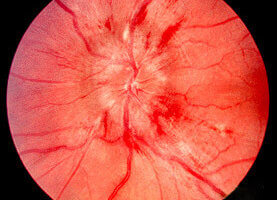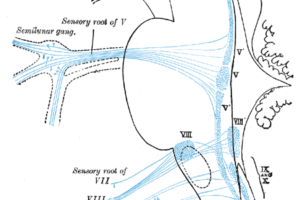Patients presenting with migraine headaches in the acute outpatient setting is common, and there are a variety of abortive therapies that can be tried.
General principles of abortive therapy for migraines
- Severity of headaches will dictate which therapy will be most effective.
- Abortive therapy is likely to be most effective if given early in the course of the headache.
- If nausea is a significant component of the migraine headache, oral agents will not be effective.
- Analgesic rebound headaches can develop due to medication overuse. To prevent this, abortive therapy use should be limited to no more than 10 days per month. For more frequent headaches, preventive therapies should be instituted.
Over the counter analgesics
Effective for mild non-complicated migraines.
- NSAIDs like aspirin, ibuprofen, naproxen have all shown efficacy. If one agent is ineffective, another one in the same class can be tried.
- Acetaminophen alone is unlikely to be effective but remains a safe choice in pregnancy.
- Combination products which include acetaminophen-aspirin-caffeine have shown effectiveness.
Triptans
Serotonin agonists which induce vasoconstriction and block pain pathways. Used for moderate to severe migraine headaches.
- Oral, subcutaneous, and nasal spray formulations in multiple doses are available.
- Sumatriptan (Imitrex), Zolmitriptan (Zomig), Rizatriptan (Maxalt), Naratriptan (Amerge), Almotriptan (Axert), Eletriptan (Relpax).
- There are no data to suggest that one triptan is better than the others.
- If response to a particular triptan is suboptimal, a higher dose of the same agent or a different triptan should be prescribed.
Side effects of triptans
Serotonin syndrome: There is a theoretical risk of serotonin syndrome when triptans are used with SSRIs or SNRIs, but this risk is very small and most experts recommend that the combination can be used safely, though patients and physicians should remain vigilant.
Chest pain: Chest pain is noted to occur in 3-5% of patients taking oral triptans. There were no associated ECG changes, however if patients develop chest pain and have risk factors for coronary artery disease, triptans should be discontinued pending further evaluation.
Contraindications to triptan use
Triptans should be avoided in patients with familial hemiplegic migraine, basilar migraine, ischemic stroke, coronary artery disease, Prinzmetal’s angina, uncontrolled hypertension, and pregnancy.
Other migraine abotrive therapies
Barbiturate-containing analgesics like butalbital/aspirin/caffeine (Fiorinal) are prescribed commonly, however there are no placebo-controlled studies looking at their effectiveness. Barbiturate containing products carry the potential risk of abuse and have also been associated with development of chronic migraine headaches. Their use should be limited to patients who have failed other therapies.
Opiate analgesics should be strongly avoided because of the potential of abuse and rebound headaches.
Adjunctive therapy with anti-emetics like metoclopramide and compazine is acceptable.
References:
- Gilmore, Benjamin, M.D. etal. Treatment of Acute Migraine Headaches. Am Fam Physician. 2011 Feb 1;83(3):271-280.
- Bajwa, Zahid, M.D. etal. Acute treatment of migraine in adults. Uptodate.com.


